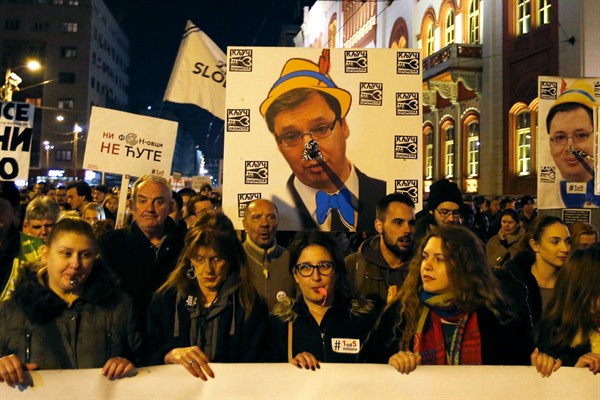Anti-government protests in Serbia that have brought tens of thousands of people into the streets, decrying what they see as increasingly authoritarian rule, are entering their third month. But there seems to be little sign that the demonstrators’ demands will be heeded.
On Feb. 25, a European Union spokeswoman, Maja Kocijancic, told reporters that there would be no “Balkan spring,” referring to widening protests in Serbia, Montenegro and Albania—all countries that are hoping to join the EU. The statement, which riled protesters in all three countries, seemed to confirm for them what has been increasingly evident in recent years: The EU prefers to stick with the devil it knows in the Balkans, backing autocratically minded governments that have failed to root out corruption and crime—the very benchmarks to join the EU—in order to preserve what it considers regional stability in the face of geopolitical rivalry.
Kocijancic said the protests in Balkan countries have different characteristics, which is the case, though frustration with ruling elites is a common theme across the region.

